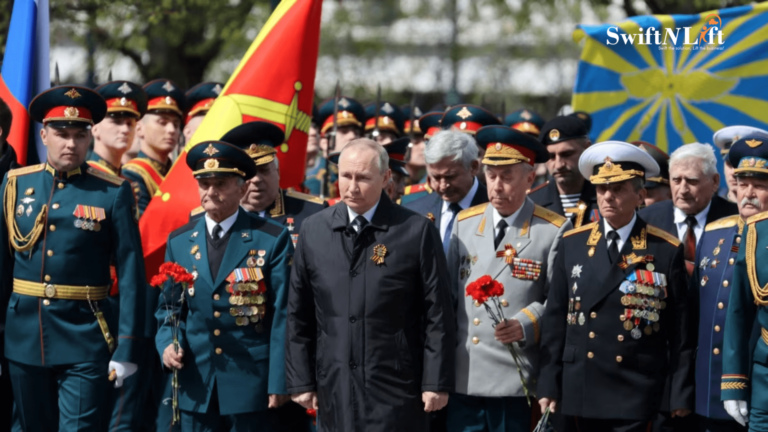
The democratic machinery groaned to life as the sun rose over the vast stretches of eastern Russia. However, beyond the surface of a presidential contest, Vladimir Putin’s tyrannical authority is a menacing presence. Russia’s political environment is more akin to a play than a battlefield for ideas, with dissent suppressed, opposition hushed, and the media silenced.
Voters will cast ballots over the course of three days, from Friday to Sunday, encompassing 11 different time zones throughout the vast country. However, let us not deceive ourselves; this is not a suspenseful match. Putin, who is 71 years old, is about to be crowned and paraded into office for a fifth term without a hitch. Who are his rivals? They’re either imprisoned, banished overseas, or worse, like Alexei Navalny, silenced forever in the remote confines of an Arctic prison.
There are a few token opposition candidates on the ballot, but remember that they are just pieces in Putin’s political chess game. self-sufficient observation? Ignore it. The appearance of openness fades like morning mist when state-backed entities are favored by strict regulations.
Both domestic and foreign observers bemoan the farce that is being played out in front of them. A voice of reason among the staged mayhem is Sam Greene, who proclaims, “The elections in Russia are a sham.” There is little opportunity for real choice or examination because the Kremlin controls every aspect of the election process, from choosing candidates to tallying votes.
However, there is another story, one of denunciation and disobedience, that exists outside the boundaries of Mother Russia. Ukraine, which is at odds with its neighbor, is furious at the Kremlin for daring to hold the election in areas it has occupied. As it approaches its third year, the conflict in Ukraine acts as both a background and a driving force behind Putin’s quest for legitimacy.
With surgical precision, political analysts deconstruct Putin’s motivations. They contend that the center of this electoral theater is Ukraine. Putin wants recognition for his handling of the crisis and his tight hold on power. However, unhappiness about the conflict and the iron fist of the Kremlin simmers beneath the surface of opposition.
Despite being ignored and targeted for persecution, the opposition won’t go away. The disillusioned are given a rallying cry by Yulia Navalnaya, the widow of Navalny: “We need to show that we exist, that we are many, and that we stand against Putin.” It is an appeal for resistance, a glimmer of light in the gloom of totalitarian control.
Can such disobedience, though, really weaken Putin’s propaganda apparatus? Golos, Russia’s impartial election monitor, presents a dismal image. Putin is the star of a farce, a theatrical spectacle that is the campaign. State media, in on the hoax, gives the proceedings very little airtime, preferring to ignore the spectacle.
It appears that authorities have given up on nuance in favor of force. Under the Kremlin’s watchful eye, pressure to follow the rules and perform their civic duties grows on state employees. Golos, an organization that stands for honesty amid a sea of dishonesty, is being persecuted, with its co-chair incarcerated on false pretenses.
There is a heavy fog of uncertainty in the air as the last day of voting draws near. Will opponents respond to Navalny’s demand for action? Will dissenting voices cloud Putin’s triumphal procession? Time will tell.
Nevertheless, there is still a glimmer of hope despite the gloom and uncertainty. Sow the seeds of resistance in the shadows of oppression. Though it may have sustained some damage, democracy’s spirit is far from shattered. The fight for freedom will never stop as long as people continue to speak up and as long as hearts continue to beat in resistance. Because in the end, the human spirit’s tenacity, not the might of tyrants, determines the path of history.




I just could not leave your web site before suggesting that I really enjoyed the standard information a person supply to your visitors Is gonna be again steadily in order to check up on new posts.
Usually I do not read article on blogs however I would like to say that this writeup very compelled me to take a look at and do so Your writing taste has been amazed me Thanks quite nice post.